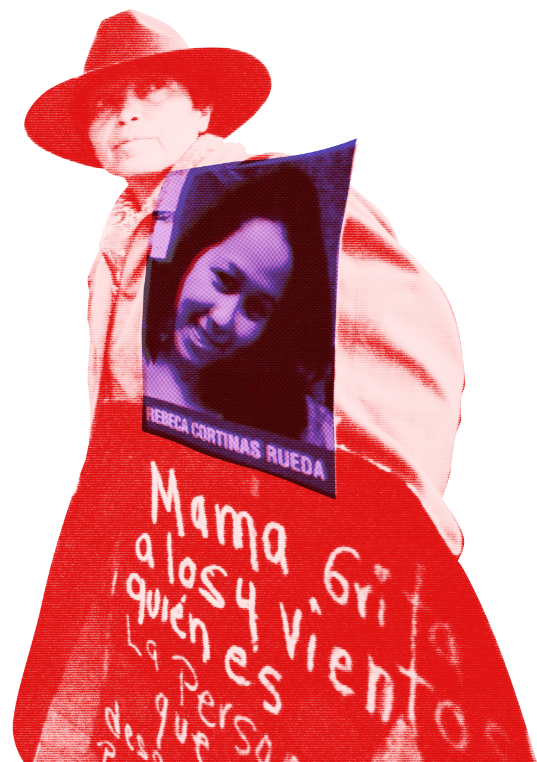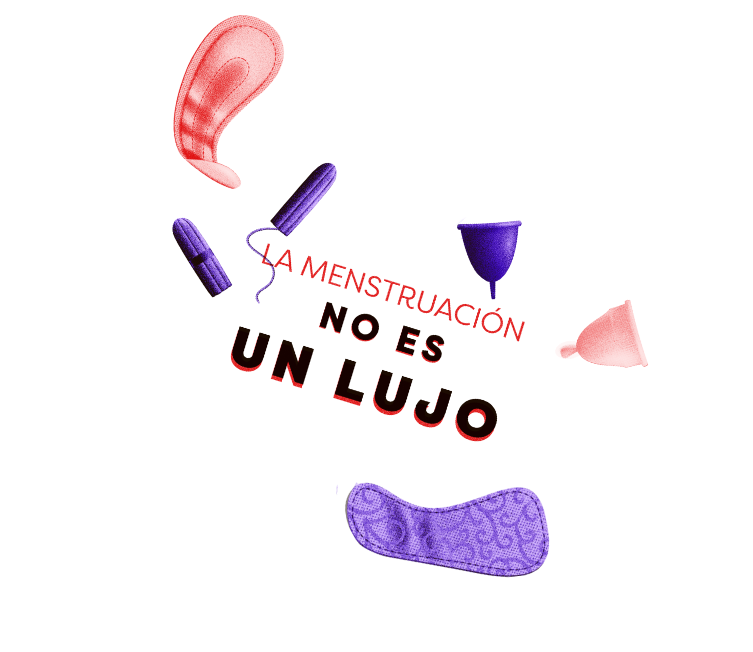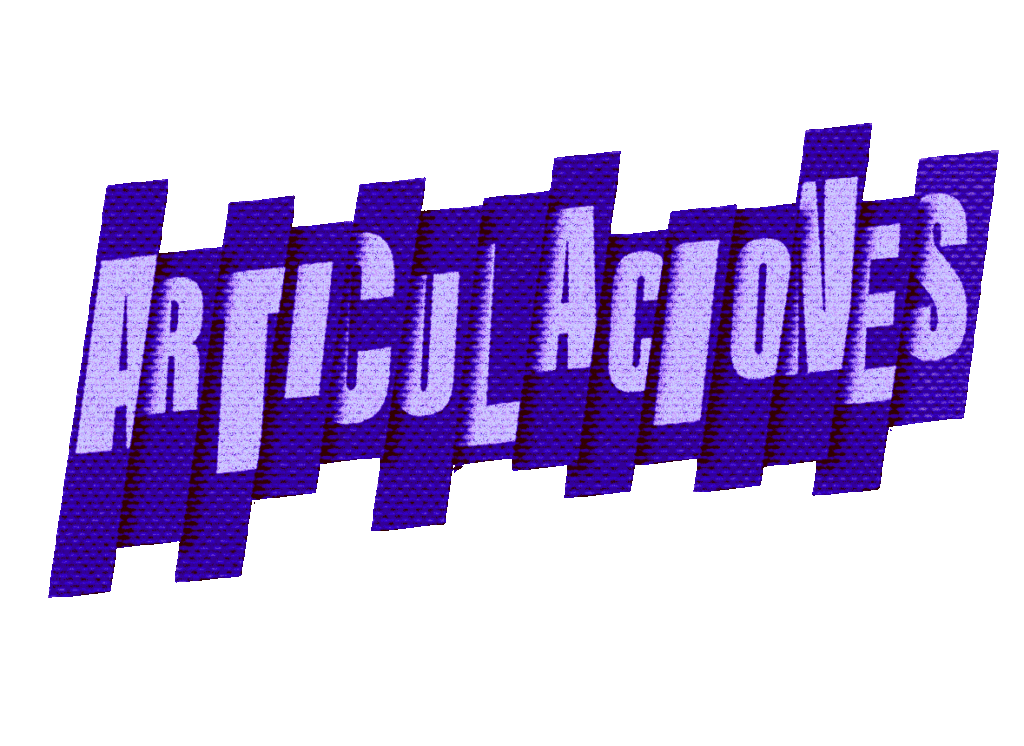

We Stand as a Collective
in the Face of the Pandemic
2020 will never be forgotten: the beginning of a pandemic, a human rights crisis that had been dragging on for decades and economic impacts, marked a year that forced us to work from a distance, but not to stop.
At Fundar, we look back to the advocacy and human rights work we have done for more than 20 years, to find strength at a time when we have lost colleagues, friends, and family members. 2020 reminded us that crises aggravate other crises, that rights defense can never stop, and, above all, that our struggle for social justice is and will continue to be a collective one.
Dignity is Stubborn
The vast majority of human rights violation cases, such as disappearances, have been marked by the apathy and inaction of the State, and consequently, while unidentified victims accumulate in the country’s forensic services, many families continue to live in uncertainty and pain. In 2020, the Extraordinary Forensic Identification Mechanism (MEIF, for its Spanish initials) was approved in response to the demand of thousands of victims, accompanied by organizations including Fundar, who were seeking to find their relatives and restore their identities. The MEIF represents the hope of thousands of people to find their loved ones and get answers. It also demonstrates that, in the struggle for justice, dignity is stubborn.

A Red Tide for Fiscal Justice
In Mexico, women, girls, and menstruating people pay a tax when buying tampons or sanitary pads. This tax is discriminatory, as these products are not luxury items, they are staple items, and many people cannot afford them. To combat this problem, in 2020, together with activists, collectives, and organizations, we created the #MenstruaciónDignaMéxico initiative (Dignified Menstruation Mexico) to demand that the government tax with a gender perspective. We fought to have the 16% value added tax (VAT) rate on these products modified to a 0% rate. The proposal was not approved, but it put the issue on the table. Today, the collective struggle continues so that all of us who menstruate can do so without an added cost and with dignity. This red tide will not stop.

The Birth of ALDEA
The defense of territory is a struggle for life. In Mexico, there are historical resistance movements led by communities and indigenous peoples. In 2020, some of these groups, supported by organizations, including Fundar, joined together in the Alliance for Free Determination and Autonomy (ALDEA, for its Spanish initials). This Alliance brings together struggles from the following ethnic groups: Tzotzil, Tzeltal, Lacandona, Tenek, Nahua, Maya, Hnahñu, Purepecha, Na Savi, Tepecano, Wixarika, Zapotec, Yaqui, Mixe, and Me’Phaa. ALDEA is a space for us to promote policies that truly make the collective rights of indigenous peoples effective so that the State might respond to the historical debts owed to the communities and, thus, we can continue to walk together towards a more just country.
Not One Step Back in the Defense of Transparency
For more than 20 years, organized civil society has promoted public policies, laws, and the creation of institutions in order to live in a country with transparent and accountable governments. With the arrival of the pandemic and given the magnitude of the crisis, many activities came to a halt. However, the suspension of deadlines for requesting information on government performance could not be put on hold. In times of pandemic, accurate, accessible, and timely information can make the difference between life and death. For this reason, together with activists and other organizations, we have raised our voices to demand accountability in the handling of the crisis, and we succeeded in getting the National Institute for Transparency, Access to Information, and Personal Data Protection (INAI, for its Spanish initials) to reestablish the deadlines for requests for access to information on essential activities. In an extremely complex year, we managed to uphold this longstanding struggle, which has been going on for decades, and we will not take a step backwards.

Decent wages for fair agriculture
The work of day laborers is essential. Despite feeding millions of families through their work, they live in conditions of poverty and discrimination while receiving precarious wages. With the arrival of the pandemic, they found themselves even more unprotected, as they continued to work despite the conditions that put them at risk, being transported in buses filled beyond their capacity and living in overcrowded conditions, which has led to the spread of the virus by bringing it to their communities. Faced with this reality, as a step forward in the struggle for a dignified life for day laborers, together with Alianza Campo Justo, we demanded the establishment of a professional minimum wage for their work, and we succeeded in setting a wage of 160 pesos per day. Although this amount is still inadequate in view of the conditions they have to face, it is a first step towards the recognition of their important work. The Alliance continues in the struggle for a fair agriculture.
Public Profiles under Scrutiny

For years, civil society has demanded that public institutions have competent and efficient members with only the best qualifications and that appointment processes do not involve dues or friendships (#SinCuotasNiCuates). In 2020, we monitored the 53 appointments made at the federal level from the Public Appointments Observatory, focusing on the processes of the National Electoral Institute (INE) and The National Institute for Transparency, Access to Information, and Personal Data Protection (INAI). At the local level, we joined forces with local organizations and actors to scrutinize 30 appointment processes. We also developed the “Decalogue of Appointments,” which contains the essential points to change the practices that affect citizen trust and thus build a new normality based on transparent processes. We strongly believe that it is our right to have better appointments, better profiles, and better results from our institutions.

We Coordinate Our Efforts in the Face of the Pandemic
The pandemic led us to rethink ways of working to continue building a fairer Mexico but also made it necessary to reflect on the impacts that the health and socioeconomic crisis would have, as well as the differentiated impacts for historically excluded and discriminated populations. Thus, Articulaciones: diálogos sobre Covid-19 y desigualdades (Coordinating Efforts: Dialogues on COVID-19 and Inequalities) was born; an online dialogue series to bring together voices from different fields and open up the conversation to regional perspectives on access to information, taxes, community rights, philanthropy, and infodemics. Also, with the same goal of coordinating efforts, we joined the Communities and COVID-19 initiative (Comunidades y Covid-19) to document the situation within indigenous communities and create informative materials on the pandemic and care. In times of crisis, information can be the best medicine.
For an Anti-Patriarchal Work Culture
Although civil society organizations face many different realities, none has been immune to the effects of the patriarchal system in which we are embedded. Cases of sexual and workplace harassment and bullying exist within the human rights sector, and we need to do something about it. Working towards the construction of safe spaces is a collective task, which is why, together with seven other organizations, we have created a model protocol to prevent, report, and attend to cases of sexual and work harassment in civil society organizations (Protocolo Modelo de Prevención y Actuación en Casos De Discriminación, Acoso y Hostigamiento Sexual y Laboral en Organizaciones de la Sociedad Civil) that is aimed at promoting change. We recognize this as a first step towards prevention and action, and we believe it can be a tool that other organizations can use and adopt to generate their own protocols and, accordingly, with actions such as this, transform our sector into one that is free of violence.

2020 in Numbers:

Think Tanks with the Most Innovative Policy Ideas/Proposals Globally
Source: 2020 Global Go to Think Tanks Index Report from the University of Pennsylvania.
Media
320
media mentions
65
interviews

Social media
25, 209
likes on Facebook
115, 507
follows on Twitter
1, 840
follows on Instagram
1, 800
YouTube subscriptions
248,086
channel views

Articulaciones: Dialogues on COVID-19, Rights, and Inequalities
5, 486
views
79, 400
viewers reached
6
research publications

- Home
- Human Rights
- Fiscal Justice
- Land and Territory
- Anti-corruption
- Campo Justo Alliance
- Public Appointments
- Covid-19
- Protocol vs Harassment
- Fundar in numbers

